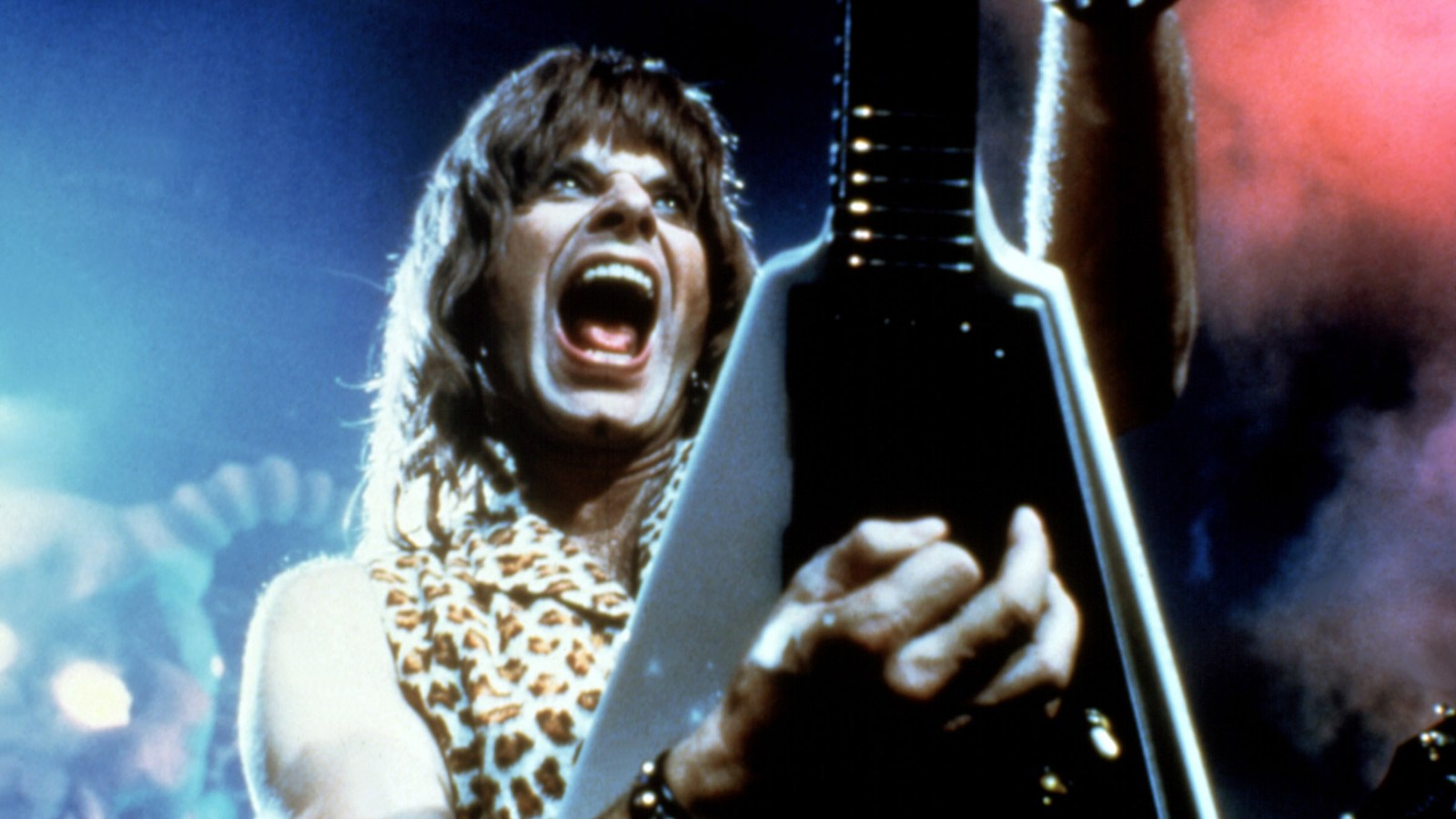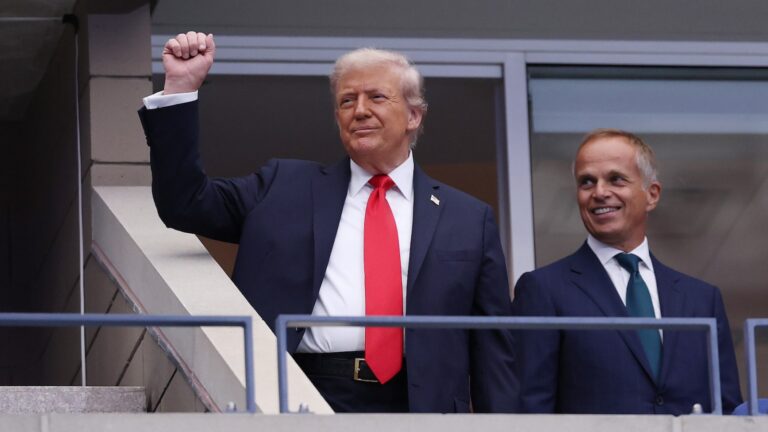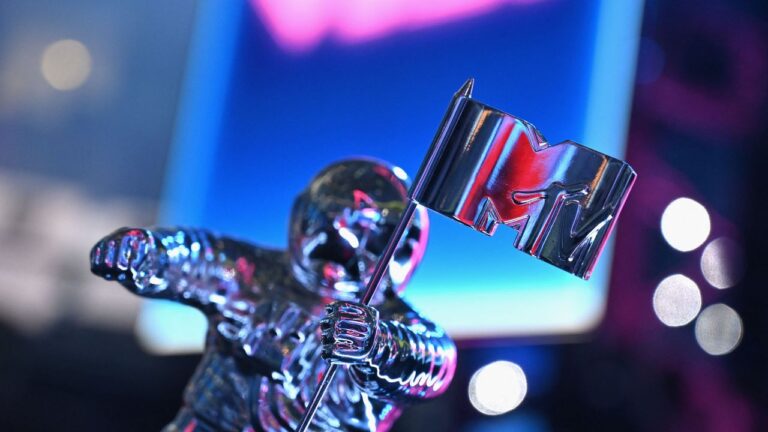For almost a decade, Christopher Guest has been “essentially retired,” the actor/director reveals in the new episode of Rolling Stone Music Now. After he directed Mascots for Netflix in 2016, he recalls the streamer telling him they’d make any film he wanted — but he didn’t have an idea for one. ”I go hiking and I walk in rivers and I ski,” says Guest, who’s been married to Jamie Lee Curtis since 1984. “And I do that and I play music every single day. So I have this life and I thought, ‘I think I really like this.’ … I don’t have an idea for a movie, and I might not ever. I don’t know.”
But Guest made an exception when it came to returning as Nigel Tufnel for Spinal Tap II: The End Continues (due in theaters Sept. 12). “ When we got together, we made each other laugh,” says Guest, who continued the original film’s original method as the director of classic films from A Mighty Wind to Best in Show. In the episode, he looks back at the origins of Spinal Tap and his character, the making of the amp-going-to-11 scene, what it was like working with Elton John and Paul McCartney, and much more. Some highlights follow. To hear the whole episode, go here for the podcast provider of your choice, listen on Apple Podcasts or Spotify, or just press play above.
Guest insists that despite widespread assumptions about the physical resemblance, Nigel Tufnel was not based on Jeff Beck.
“We had no money doing the first movie,” Guest says. “There was a hair person that said, ‘We’ll just go and look up wigs.’ … It was like a woman’s wig. And she said, ‘Well, I’ll just cut it in a kind of a rock & roll style.’ I had heard Jeff Beck, but I don’t know if I had ever seen a picture where I went, ‘oh, that’s the guy’ … and I had never seen video of him.” Guest and Beck eventually became real-life friends, and the guitar hero never said anything to him about the parallels.
“Stonehenge” was written alongside another, never-released Spinal Tap song.
“Michael McKean and I were sitting with two guitars in the living room,” Guest says. “And we started to write a couple of songs. One was called ‘The Princess and the Unicorn,’ which I don’t think we ever recorded. ’The princess and the unicorn were sitting in the garden …’ and it was almost like something you’d hear played on the lute and a renaissance kind of wind instrument. We can play the first part of it when we get together, but then we forget the rest of it. And then ‘Stonehenge’ started to happen.”
Elton John was a “good sport” for his guest appearance in Spinal Tap II, even participating in a physical stunt that’s key to the end of the movie.
“He was such a good sport,” says Guest. It was insane. This is a person who’s had some physical things, serious things in the last years. And he came in and he was sort of limping and I thought, ‘Oh my God, we’re doing this stunt, we’re doing this thing.’ And he was amazing. I mean, imagine if he’d said, ‘This is bullshit. I’m walking out.’ No movie! And he was amazing, just so generous.”
Ricky Gervais once told Guest that The Office was inspired by This Is Spinal Tap, even though it wasn’t improvised.
“I called up Ricky Gervais, this was 15 years ago, and it was instantaneous connection,” says Guest. He said, ‘I want you to know that’s the most important movie to me ever, and that I used it as the basis for a style. But we wrote every single word.’”
Nigel Tufnel’s new career as a cheese-shop owner in the sequel comes from Guest’s real love for cheese and a passing fantasy.
Walking into Neal’s Yard Dairy cheese shop in London, Guest saw a “help wanted” sign and had an epiphany after experiencing the shopkeeper’s sincerity and passion: “I thought, I’m gonna call Jamie,” he says. “I’m gonna tell her, ‘I think I’m gonna do this. I could work here, I could learn about this.’”
Guest started improvising because he had real trouble remembering dialogue and song lyrics.
“I was in a band when I was 16 or 17, and I used to have to write the lyrics on a piece of paper and tape it to my guitar,” he says. “And I’d be in a panic about not being able to remember words that I had written. And when I was in plays, I found it difficult, and that led to the idea of, ‘Well, I could make this up.’”
Download and subscribe to Rolling Stone‘s weekly podcast, Rolling Stone Music Now, hosted by Brian Hiatt, on Apple Podcasts or Spotify (or wherever you get your podcasts). Check out six years’ worth of episodes in the archive, including in-depth interviews with Mariah Carey, Bruce Springsteen, Questlove, Halsey, Neil Young, Snoop Dogg, Brandi Carlile, Phoebe Bridgers, Rick Ross, Alicia Keys, the National, Ice Cube, Taylor Hawkins, Willow, Keith Richards, Robert Plant, Dua Lipa, Killer Mike, Julian Casablancas, Sheryl Crow, Johnny Marr, Scott Weiland, Liam Gallagher, Alice Cooper, Fleetwood Mac, Elvis Costello, John Legend, Donald Fagen, Charlie Puth, Phil Collins, Justin Townes Earle, Stephen Malkmus, Sebastian Bach, Tom Petty, Eddie Van Halen, Kelly Clarkson, Pete Townshend, Bob Seger, the Zombies, and Gary Clark Jr. And look for dozens of episodes featuring genre-spanning discussions, debates, and explainers with Rolling Stone‘s critics and reporters.



